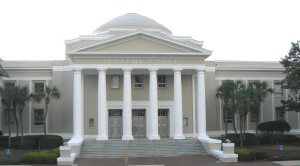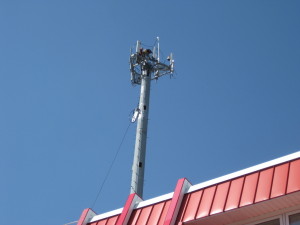
For printable .pdf version click here.
New 2015 Florida Statutes Affecting Both Condominium and Homeowner Associations:
1. Voting Rights Suspensions (applies to HOAs and condos): An association may now suspend the voting rights of a member or unit due to the non-payment of any fee, fine or other monetary obligation due to the association which is more than 90 days delinquent. Owners whose voting rights have been suspended are not counted towards the total number of votes of a homeowners’ or condominium owners’ association. Further, a suspension of voting or common element use rights can apply to all of an owner’s tenants and guests, including multiple unit owners, even if the delinquency that resulted in the suspension arose from less than all of the multiple units owned by a member.
2. Proxies (applies to HOAs and condos): A copy of a proxy is valid and can be transmitted to a community association via email (scan) or by fax. Facilitates voting from absentee owners.
3. Electronic Voting (applies to HOAs and condos): Allows for the establishment of online voting. Specific requirements are set forth in the law, including the passage of a resolution by the Board authorizing online voting. Owners that do not affirmatively consent to online voting are required to be given paper voting materials.
4. Fines (applies to HOAs and condos): Prohibits board members and individuals residing in a board member’s household from serving on a Fining Committee. The new law also requires a community association’s Board of Directors, not its Fining Committee, to levy a fine. In turn, a Fining Committee’s authority is limited to rejecting or approving the fine levied by the Board. A fine that is rejected by a Fining Committee is not imposed. The new law fails to set forth the notice requirements to owners for the Board of Directors meeting in which a fine is levied.
5. Electronic Notice (applies to HOAs and condos): No longer is the authority to transmit association notices required to be in the association’s Governing Documents. A member’s consent to electronic transmission is now the only requirement.
6. Service Animals (applies to HOA’s and condos): New law specifies the conditions where a service animal may be removed or excluded, penalties are provided for the misrepresentation of a service animal. In addition to the criminal penalties in the existing law, a business unlawfully denying or interfering with an individual’s right to use or train a service animal may be sentenced to perform 30 hours of community service with an organization that serves individuals with disabilities. This law does not affect “emotional support animals” which are the majority of the exceptions issued in pet restricted communities. As such, this new law will have little effect on the issue of emotional support animals in a pet restricted community.
7. Required Notice to Tenants (applies to HOAs and condos): A bona fide tenant must be given at least 30 days’ notice before being evicted from a foreclosed home.
8. Transient Occupancy, Squatters (applies to HOAs and condos): New law removes “transient occupancy” from the landlord-tenant regulation under Chapter 83. Squatters and transients can be removed from a residence by law enforcement officials instead of having to file for an eviction.
9. Drones (applies to HOAs and condos): If a reasonable expectation of privacy exists, a person, state agency or political subdivision are prohibited from using a drone to capture an image of privately owned real property or of the owner, tenant, or occupant of such property with the intent to conduct surveillance without his or her written consent. The existing law enforcement exception, subject to certain conditions, was expanded to include activities by any person or entity engaged in a business licensed by the state (such as property appraisers, utilities, cargo delivery systems). Civil remedies for violations include compensatory damages, punitive damages and injunctive relief.
10. Construction Defects (applies to HOAs and condos): In addition to the existing requirements of Chapter 558, Florida Statutes, this new law introduces a new method for resolving construction defect disputes before filing a lawsuit.
11. Private Property Rights (applies to HOAs and Condos): Bert Harris Private Property Rights Act was amended to create a cause of action for damages if a landowner is subjected to local and state governmental requirements so onerous they are considered “unconstitutional exactions”. Landowners now have a legal remedy when a state or local government make extortionate demands on property owners in exchange for permit approvals. Pre-suit notice to the government is required. If a lawsuit is filed, the governmental entity is required to prove the exaction complies with the standards set by the U.S. Supreme Court and the property owner must prove damages. The measure of damages recoverable are clarified and include injunctive relief, costs and attorney fees. Governmental entities may recover attorney fees and costs if they prevail.
New 2015 Florida Statutes Affecting Condominium Associations Only
1. Application of Assessment Payments (applies to condos only): The use of “full and final” payment language on a check for partial payment does not apply to, nor overcome the existing statutory requirements for applying the partial payment of assessments (accrued interest, administrative late fees, costs, attorney’s fees, the delinquent assessment). Allows an association to accept a partial payment without fear an owner is trying to establish an “accord and satisfaction” fact pattern to eliminate the remaining amounts owed.
2. Damage Not Caused by Insurable Event (applies to condos only): Clarifies damage not caused by an insurable event is not automatically an association responsibility. Instead, the unit owner or the association is responsible for non-insurable events according to the reconstruction, repair or replacement provisions of the association’s Governing Documents.
3. Official Records (condos only): Non-written records (audio recordings, videos of board meetings or security camera video recordings, etc.) are not “official records” available for owner inspection as a matter of right.
4. Extension of Bulk Assignee/Bulk Buyer Classification (Condos only): The bulk buyer law is extended until July, 2018. Bulk buyers of distressed condominium projects are granted additional immunity from various typical developer obligations.
5. Expenses in Annual Budget (condos only): Extends and clarifies the minimum applicable expenses that have to be listed in an annual budget. Full list of expenses available at Florida Statute §718.504(21).
6. Lien for Late Fees (condos only): Administrative late fees can now be included on a claim of lien for past due assessments. Important for condominiums associations whose Governing Documents do not provide for the imposition of late fees.
7. Condominium Association Terminations (condos only): New restrictions imposed on the termination of condominiums created by the conversion of existing improvements under Part VI of the Condominium Act. The methodology for determining market value of condominium units is clarified. First mortgages are now required to be fully satisfied prior to termination of the condominium. Further, if a termination vote fails, another vote to terminate may not be considered for 18 months. When holding a termination vote, voting interests that have been suspended are still entitled to vote on the termination. In addition, a termination vote may not take place until 5 years after the recording of the declaration of condominium, unless there is no objection to the termination.
New 2015 Florida Statutes Affecting Homeowner Associations Only
1. Amendments (HOAs only): Failure to provide the required statutory notice of the recordation of an amendment does not nullify or affect the validity of the amendment.
2. Naming Florida Statute Section 720 (HOAs only): Chapter 720 of the Florida statutes is now officially known as the “Homeowners’ Association Act”.
3. Board Member Delinquencies/Eligibility (HOAs only): Any person who is delinquent in the payment of any financial obligation as of the last day he or she could nominate himself or herself to the board, is not eligible to be a candidate and may not be listed on the ballot. Additionally, any director 90 days delinquent in the payment of any monetary obligation is deemed to have abandoned his or her directorship. In such instances, a vacancy required to be filled according to law and the association’s Governing Documents is created.
Stay one-step ahead of new legislation, recent case law and new developments that impact your community association by subscribing to the Gerstin & Associates Community Association Newsletter. Please complete and fax the following to: (561) 750-8185 (no cover page needed).
Name: ____________________________
Association name: _____________________
Position at the association (director, property manager, etc.) _____________________
Email address: ______________________
Telephone number: __________________






